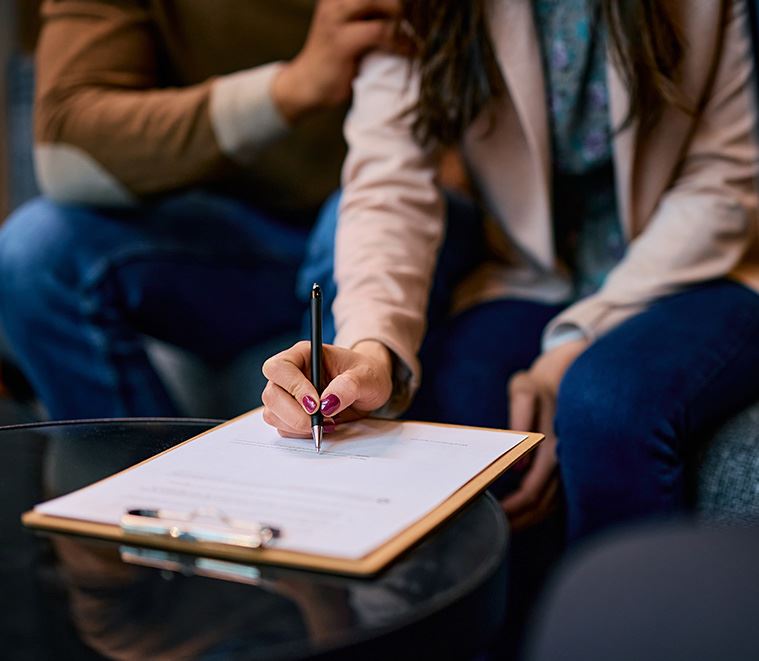
Contact Us Today!
Bryan-College Station Premises Liability Lawyer
Texas premises liability law is governed by the Texas Civil Practice and Remedies Code and case law. The law states that property owners and occupiers must maintain their premises in a reasonably safe manner for visitors. This includes taking steps to protect against foreseeable risks, such as slippery floors, uneven surfaces, or inadequate lighting.
Property owners are expected to know about such risks through proper maintenance and, where risk arises, remedy it as soon as possible and warn visitors about it in the meantime. Premises liability applies to both private and public properties, including businesses and governmental buildings.
At Paradowski Law, we represent Texans who have sustained injuries due to the negligence of property owners in Bryan-College Station, Grimes, Milam, Temple, Washington, Waco, and McClennan. Attorney Jeff Paradowski is a legal expert in this field as a Board Certified personal injury trial lawyer under the Texas Board of Legal Specialization with 30+ years of professional experience.
Request a free consultation with our Bryan-College Station premises liability attorney at (855) 524-2976 or submit your request on our Contact Page.
What Is Premises Liability?
Premises liability in Texas refers to the legal responsibility of property owners and occupiers to maintain a safe environment for visitors and guests. This area of law deals with accidents and injuries that occur on another’s property due to the owner's negligence or failure to maintain a safe environment.
Types of Premises Liability Cases
Various scenarios can lead to a premises liability claim. These include but are not limited to:
- Slip and fall accidents
- Injuries caused by falling merchandise
- Negligent security leading to assault or theft
- Dangerous dogs
- Swimming pool accidents or drownings
- Elevator and escalator accidents
- Uneven sidewalks, pavement, or walkways
- Toxic exposure (mold, asbestos, or chemicals)
- Inadequate security, leading to criminal attacks
- Loose carpeting, rugs, or mats
- Poor construction or building maintenance
- Inadequate lighting
Are There Statute of Limitations for Filing a Premises Liability Claim in Texas?
The statute of limitations for filing a premises liability claim in Texas is typically two years from the date of the injury or accident. After this time period expires, you may lose the opportunity to pursue a claim.
Slip & Fall Accidents
Slip and fall accidents are among the most common premises liability cases. Many slip and fall cases result from uneven walking surfaces, unmarked wet floors, poor lighting, lack of floor mats in areas prone to slipping hazards, adverse weather conditions such as rain and snow, and other dangerous conditions created, or not remedied by, the property or business owner after sufficient notice.
- Related: Top Causes of Slip & Fall Accidents
In summary, slip and fall accidents are far from being mere inconveniences. They pose a range of dangers, including physical injuries, emotional and psychological trauma, financial hardship, long-term health complications, legal issues, and a diminished quality of life. It is crucial to recognize the gravity of these accidents and take proactive steps to prevent them, such as maintaining safe environments and practicing vigilance when navigating potentially hazardous areas. By understanding the dangers associated with slip and fall accidents, we can work towards a safer and more secure society for all.
Why Slip and Fall Accidents are Dangerous
Slip and fall accidents might seem like minor mishaps, often brushed off as harmless incidents. However, these accidents conceal a myriad of dangers that can have serious and far-reaching consequences.
- Physical Injuries: One of the most obvious and immediate dangers of slip and fall accidents is the potential for physical injuries. When an individual loses their balance and falls, they can sustain a range of injuries, from minor bruises and sprains to more severe fractures and head trauma. These injuries can lead to excruciating pain, long recovery times, and sometimes even permanent disabilities.
- Emotional and Psychological Impact: Beyond physical harm, slip and fall accidents can also take a toll on an individual's emotional and psychological well-being. The trauma of a sudden fall can lead to anxiety, depression, and post-traumatic stress disorder (PTSD), especially in cases of severe injuries. This emotional toll can affect a person's overall quality of life and may require therapy or counseling to overcome.
- Financial Burden: The financial consequences of slip and fall accidents can be staggering. Medical bills, rehabilitation costs, and lost wages due to time off work can quickly accumulate. In some cases, individuals may require ongoing medical treatment or home modifications to accommodate their injuries, adding to the financial burden. These unexpected expenses can lead to financial instability and stress.
- Long-Term Health Complications: Certain injuries resulting from slip and fall accidents may lead to long-term health complications. For example, a hip fracture in an elderly individual can result in decreased mobility, loss of independence, and an increased risk of further health problems. Understanding the potential for long-term health consequences underscores the need for prevention and prompt medical attention.
- Liability and Legal Issues: Slip and fall accidents can also lead to legal complications. Property owners or businesses may be held liable for accidents that occur on their premises, particularly if negligence or hazardous conditions contributed to the incident. Legal battles can be time-consuming, emotionally draining, and costly for all parties involved.
- Impact on Quality of Life: Slip and fall accidents can significantly impact an individual's overall quality of life. The pain, disabilities, and emotional distress resulting from such accidents can limit a person's ability to enjoy daily activities, hobbies, and social interactions. Quality of life can diminish, affecting relationships and overall well-being.
What Steps Should I Take If I’m Injured On Someone’s Property?
If you are hurt on someone else's property in Texas, you may be able to pursue a premises liability claim more easily if you move quickly and appropriately.
These are essential actions to take:
- Get Medical Help: Make your health a priority. Additionally, certain injuries might not be seen right away.
- Report the incident: Inform the manager or property owner of the incident as soon as you can, ensuring that a documented record is made.
- Record Everything: Take pictures of the scene of the accident, being sure to capture any elements that may have contributed to your injuries. Obtain the identities and contact details of any witnesses.
- Maintain Proof: Save any tangible proof of your injuries as well as the attire you were wearing at the time of the event.
- Don't Give Details: Before discussing with an attorney, don't give insurance companies detailed statements or accept any settlement offers.
Speak with a Premises Liability Law Attorney: Get experienced legal counsel from a Texas premises liability law professional at Paradowski Law. We are able to assist you in submitting a claim while ensuring that your rights are upheld.
By following these procedures, you can protect your health and bolster your premises liability lawsuit in Texas.
How Does Negligence Play a Role in Premises Liability Claims?
In premises liability claims, negligence plays a crucial role in determining liability. Negligence refers to the failure of a property owner or occupier to exercise reasonable care in maintaining their premises.
To establish a premises liability claim based on negligence, the following elements must typically be proven:
- Duty of Care: The property owner or occupier must owe a duty of care to the injured party. This duty varies depending on the relationship between the parties and the circumstances. For example, a business owner has a higher duty of care towards their customers compared to a landowner allowing someone to enter their property without permission.
- Breach of Duty: The property owner or occupier must have breached their duty of care by failing to take reasonable steps to prevent or address dangerous conditions on their premises.
- Causation: The breach of duty must have directly caused the injuries sustained by the plaintiff. It must be shown that the hazardous condition on the property was a foreseeable cause of harm.
- Damages: The plaintiff must have suffered actual damages, such as physical injuries, medical expenses, lost wages, or pain and suffering, as a result of the hazardous condition.
To prove negligence in a premises liability case, evidence is crucial. This can include:
- photographs or videos of the hazardous condition
- witness statements
- maintenance records
- inspection reports
- expert testimony
It is important to consult with a legal professional who can guide you through the process and help gather the necessary evidence to establish negligence in your specific premises liability case.
Injuries Caused by Falling Merchandise
Falling merchandise cases arise when a shopper or customer is hurt by merchandise that has been stacked too high or otherwise not safely secured. Stores must protect customers from falling merchandise.
This means stores must have policies and procedures in place to ensure that merchandise is properly stacked and secured. Causes of falling merchandise can include lack of proper employee training and lack of warning to customers.
Negligent Security Claims
Negligent security includes cases involving injury or death from criminal activity occurring at a place of business. For example, if you were injured by a criminal attack involving robbery, rape, assault, or battery, you may have a claim against the property owner or tenant for failure to provide appropriate security to deter such criminal activity.
This concept applies to commercial property owners, retail tenants, hotels, apartment managers, college dormitory owners and operators, sports arenas, entertainment venues, and more. In these cases, it must be proven that criminal activity on the property was foreseeable. Courts determine foreseeability primarily based on prior crimes that occurred in the same location, such that the owner knew or should have known of the danger.


-
About Our Firm
-
Case Studies
-
Helpful Articles